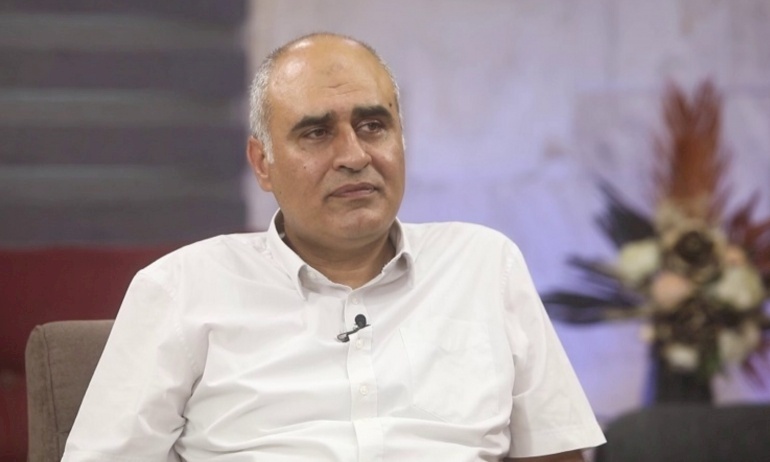
Shawa: The Announced Ceasefire is "Partial" and Does Not Cover All of Gaza, and the Occupation Has Not Withdrawn from Any Area
SadaNews - Amjad Shawa, the head of the network of civic organizations in the Gaza Strip, stated that the announcement of a "humanitarian ceasefire" by the occupying army pertains to a partial ceasefire limited to a few hours to facilitate the entry of aid.
He clarified that this applies only to several locations specified by the occupying army, which are the densely populated areas that are hosting thousands of displaced persons, primarily in the Al-Mawasi and Deir al-Balah areas.
Shawa pointed out that the 2.2 million citizens of the Gaza Strip live in an area not exceeding 46 square kilometers, which represents no more than 12% of the total area of the Strip.
He explained that the number of trucks loaded with aid expected to enter the Gaza Strip in the coming hours ranges between 150 and 200 trucks, which would help alleviate the scale of the humanitarian disaster in the Strip, where the daily need is estimated at 1,000 trucks.
He mentioned that the trucks expected to enter will carry essential relief materials, such as flour, food supplies, medical supplies, and hygiene products, and water purification materials, through the United Nations and international organizations such as the World Food Programme, UNICEF, and the World Health Organization, in addition to the Egyptian side and the Jordanian Hashimite Authority.
The head of the network of civic organizations in the Gaza Strip noted that the occupying entity's announcement that the distribution of aid is contingent upon United Nations institutions represents an Israeli admission of the failure of the process to displace the United Nations and humanitarian institutions from the scene, replacing them with attempts to promote what is called the Gaza Humanitarian Institution, which has established centers for death, daily killing, and humiliation for the people of the Gaza Strip.
He added: "The presence of UN institutions is extremely important, especially since they work within humanitarian principles that ensure the safety and dignity of citizens."
He continued that the distribution of aid will be conducted according to a mechanism overseen by international institutions and Palestinian civic organizations in partnership with the United Nations, based on databases that ensure everyone receives aid, and according to maximum priority considerations that take into account women-led households, persons with disabilities, the elderly, the sick, and the injured, through hundreds of distribution centers operating on the ground to facilitate citizens' access to assistance.
Shawa urged the people of the Gaza Strip not to obstruct the trucks or stop them, ensuring their arrival at warehouses and distribution centers so that distribution operations can begin directly, despite the suffering they have endured during the past period.
He called on citizens not to expose their lives to any form of danger by heading to the areas to which the Israeli occupation has imposed forced displacement, especially since the occupation has not announced its withdrawal from any of the areas, and any return would be a risk to life, particularly as this concerns a humanitarian ceasefire limited to a few hours to secure the entry of aid.

Minister Al-Maimi: The Atara Water Project is a Top Priority

Minister Shahin Meets the First Deputy Speaker of the Ghanaian Parliament

Occupation Forces Arrest Three Citizens from Al-Aybidia

Occupation Notifies of Construction Halt on House Northeast of Bethlehem

Arab Entrepreneurs Union honors Ahmad Nasser Al-Suweir with the Inspiring Award 2025

Weather Conditions: Partly Cloudy and Cold

Tens of Thousands of Worshipers Perform Friday Prayer at Al-Aqsa

